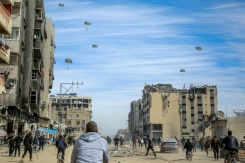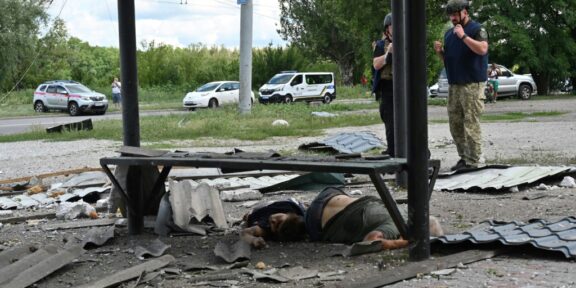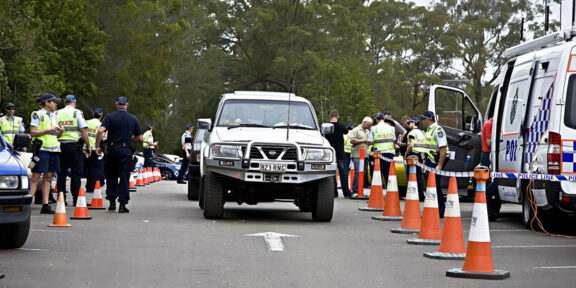On a small hill around a dozen kilometres (seven miles) from Kharkiv, Ukraine’s second largest city, some burnt-out vehicles lie abandoned. Nearby in the woodland undergrowth are the former positions of Russian troops.
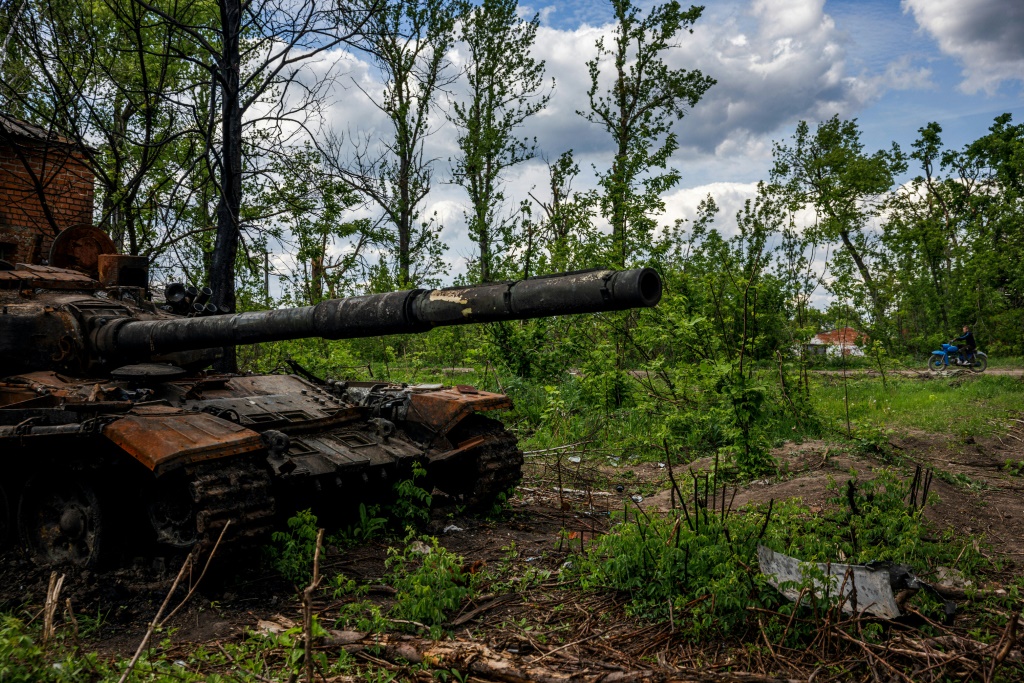
The ground is strewn with empty green and white ration tins bearing the star logo of the Russian army.
It is unclear how long the soldiers had been there but they left on March 24 when Ukraine launched its counter-offensive and pushed them back towards the Russian border and retook Mala Rogan.
On the hilltop, a smashed-up armoured personnel carrier is emblazoned with the “Z” that characterises Russian vehicles.
A few hundred metres (yards) further down the side of the hill are two immobile tanks. The soldiers had set up positions in the undergrowth, digging shallow trenches and erecting makeshift shelters with sandbags. There is a frying pan on one of them and kindling outside.
There are no corpses to be seen but Ukrainian troops had already visited the site and there may have been victims.
Craters made by bombs and mortar shells however are visible.
The Russians appear to have left in great haste, abandoning many belongings — pans and dirty cutlery, a shoe, sleeping bags, razors, toothbrushes, plastic boxes, jackets, rucksacks, T-shirts, a pack of cards, fruits in brandy, even a sports car seat.
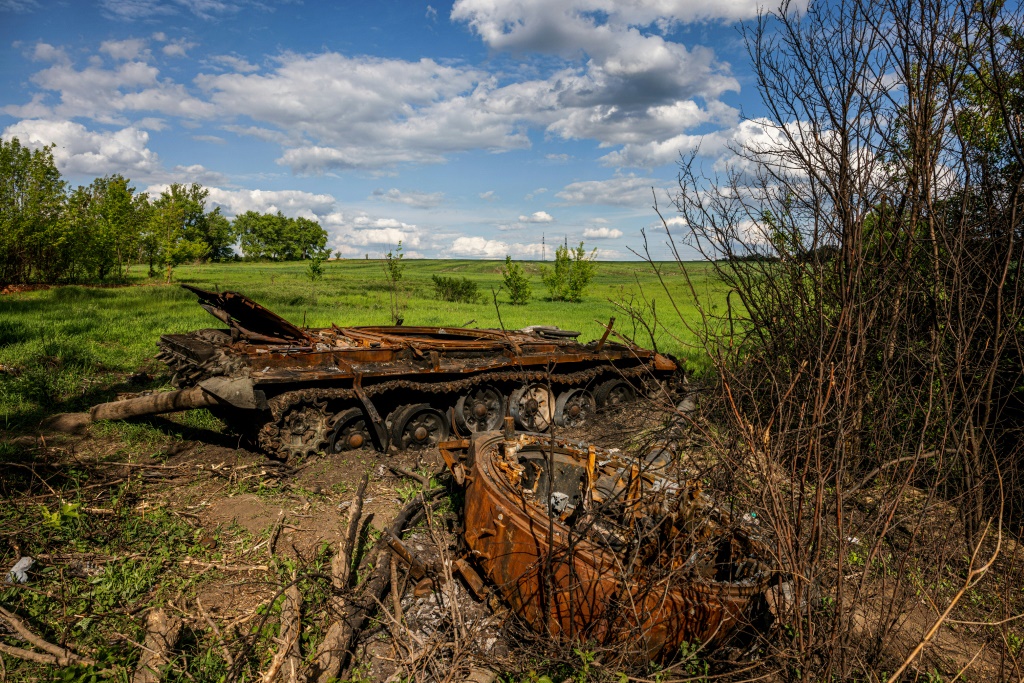
Strangely, even though there are numerous empty boxes of rocket ammunition and grenades, and some cluster munitions, there are no rifle or automatic weapon cartridges.
Perhaps a sign of their youth and inexperience, the soldiers also left behind firing instructions — laminated information sheets stuck on wooden boards giving correct firing distances and information on how to use grenades.
At another site, a list of soldiers’ names is found, written in pencil. Several were born after 2000.

